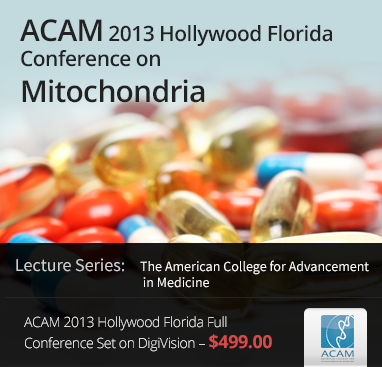- Dr. Sangeeta Pati - Hormones, Nutrition, Detoxification, Mind, and Body
- IV Nutrition Textbook
- IV Nutrition and BHRT Workshops - by Central Drugs
- Regenerative Business Summit by Medfit
- Cash Practice Success Summit
- Special Topic Sets on Hormones, Weight Loss, Stem Cells, Cancer, Sex, and more
- Ron Rothenberg, MD Special Set
- Thierry Hertoghe, MD Special Set

Good morning everybody. You guys represent the hard-core group here, we’re all still present and accounted for. This morning we’re going to talk a little bit about autoimmune markers and I want to make them relevant to the age management process. We’re going to be looking at the sick or ill population and see what lessons we can glean from them in reference to what we’ve been talking about the last couple of days here.
As an integrative rheumatologist practitioner, I want to talk a little bit about what integrative rheumatology is, which is going to essentially segue into our discussion about biomarkers, their common use, we’re going to introduce some novel biomarkers, an overview how this relates to personalised area of medicine which is exactly what you’ve been hearing about today and for the last few days. We’re also going to discuss the overview of rheumatology, literature regarding hormones in some specific autoimmune conditions, specifically lupus and rheumatoid arthritis, we’re going to have a practical discussion about the role of DHEA in the treatment of rheumatoid arthritis or lupus and I’m going to give you my opinion based on my experience as a practicing rheumatologist and now an integrative rheumatologist in terms of hormone balancing, as well as the entire mind, body, spirit approach.
So in terms of definitions, the definition of integrative medicine really is what I borrowed for in terms of the rheumatology application and the definition reads from the Arizona Center for Integrative Medicine which is, ‘A healing oriented medicine informed by evidence that accounts for the whole person mind, body and spirit including lifestyle and emphasises therapeutic relationships. It uses all the appropriate therapies of conventional and alternative for optimal health and healing’.
So this is the basis, this is the platform for which the future doctors being trained in our country actually are hearing and are part of the academic centres approximately 50 of them they form the consortium for academic health in the centres of integrative medicine and although this generation of physicians present here may not have trained in that environment, be aware that it’s coming now from the new doctors that are being trained so you being here are joining them as they are starting on their careers.
Now integrative rheumatology and the conventional modalities and diagnostics basically are listed on the left and essentially we’ve seen that that’s a reactive paradigm. Something happens, we test, we treat. Obviously we want to treat before then and it’s been emphasised and I can’t reemphasise enough that lifestyle, nutrition, supplements, exercise, stress management, all have emphasis on and effectives on the immune system as well as the benefits we get in terms of being able to reduce drug therapies and obviously side effects. Some of the conventional modalities and testing that we use in rheumatology now are listed here, it’s the usual myriad, the non-steroidals, the immunosuppressives, the biologic agents which never stop coming, every time I turn around there’s a new series of them coming, they’re lined up like the jets at Miami International Airport at the peak of rush hour waiting to launch. And what we’re going to talk about today is about the autoimmune testing and how it relates to having some type of predictive role in terms of disease activity and how we can extrapolate that information to our patients in terms of reducing the risk, maybe catching the problem or the autoimmune dysfunction at an earlier state in order to obviate actually disease developing or at least to monitor our therapies.
To purchase the entire DVD lecture series, click here.
Sep
21,
2015






